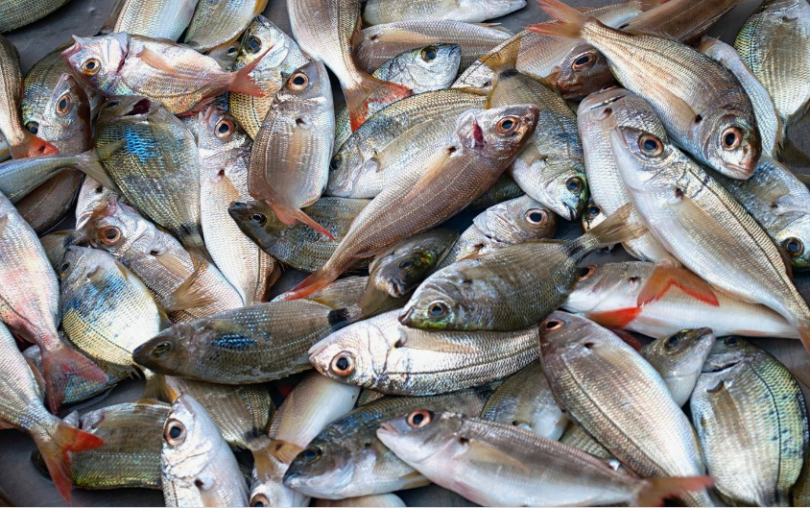Fish Zole, also known as Metronidazole, is a medication primarily used to treat bacterial and protozoal infections in fish. It belongs to the nitroimidazole class of antibiotics and is effective against a wide range of pathogens commonly found in aquarium and pond environments.
purpose and Applications
The primary purpose of Fish Zole is to combat bacterial infections such as fin rot, columnaris disease, and skin ulcerations in fish. Additionally, it can be used to treat protozoal infections like hexamita and giardia.
Fish Zole is available in various forms, including tablets, powder, and liquid, making it convenient for both freshwater and marine fish.
Brief History
Fish Zole has been a staple in the aquarium hobbyist’s medicine cabinet for decades. Originally formulated for veterinary use, it gained popularity among fish enthusiasts for its effectiveness in treating common fish ailments. Over time, its accessibility and affordability have made it a go-to solution for fishkeepers worldwide.
Related Article: Exploring the Fascinating World of Fish Hook Necklaces
Table of Contents
ToggleComposition and Functionality
Active Ingredients
The active ingredient in Fish Zole is Metronidazole, a powerful antibiotic that targets anaerobic bacteria and protozoa. Metronidazole works by disrupting the DNA structure of these microorganisms, ultimately leading to their death or inability to reproduce.
This key component is what gives Fish Zole its potent antimicrobial properties, making it effective against a wide range of fish infections.
Mechanism of Action
Metronidazole exerts its antibacterial and antiprotozoal effects by entering the cells of the pathogens and interfering with their DNA replication process. Specifically, it inhibits the synthesis of nucleic acids, disrupts DNA structure, and induces cell death in susceptible microorganisms.
This mechanism of action makes Fish Zole particularly effective against anaerobic bacteria and protozoa, which thrive in low-oxygen environments commonly found in fish tissues.
How It Works in Fish Health
In fish, Fish Zole effectively targets and eliminates bacterial and protozoal infections that can compromise their health and well-being. Whether it’s treating fin rot, mouth fungus, or intestinal parasites, Fish Zole works by eradicating the causative agents responsible for these ailments.
By restoring the microbial balance in the fish’s environment and bolstering their immune system, Fish Zole helps promote healing and recovery. Additionally, its broad-spectrum activity ensures comprehensive treatment, addressing multiple types of pathogens simultaneously.
As a result, Fish Zole plays a crucial role in maintaining the health and vitality of aquarium and pond fish, contributing to their longevity and overall well-being.
Related Article: AFTCO Fishing Shirts: Elevating Your Angling Experience
Uses of Fish Zole
Treatment of Common Fish Diseases
Fish Zole is widely used in the treatment of various common fish diseases, including:
- Fin Rot: Fish Zole helps combat bacterial infections that cause deterioration of the fins, restoring them to their normal condition.
- Columnaris Disease: This bacterial infection, characterized by white patches on the fish’s skin, fins, and mouth, can be effectively treated with Fish Zole.
- Hexamita and Giardia: Fish Zole is effective against protozoal infections like Hexamita and giardia, which can cause digestive issues and lethargy in fish.
- Mouth Fungus: Also known as cottonmouth or mouth rot, this bacterial infection affecting the fish’s mouth and lips can be treated with Fish Zole.
Preventative Measures
In addition to its role in treating active infections, Fish Zole can also be used preventatively in certain situations. Adding Fish Zole to a quarantine tank when introducing new fish can help prevent the spread of potential pathogens to the existing fish population.
Similarly, using Fish Zole as part of a regular maintenance routine in aquariums or ponds with a history of recurrent infections can help keep bacterial and protozoal populations in check, reducing the likelihood of outbreaks.
Off-Label Uses and Controversies
While Fish Zole is primarily marketed and sold for veterinary use in fish, it has also garnered attention for off-label uses and controversies.
Some fish enthusiasts and hobbyists have experimented with using Fish Zole to treat infections in other aquatic animals, such as turtles and amphibians. However, the efficacy and safety of such applications remain uncertain, as Fish Zole is formulated specifically for fish and may have adverse effects on other species.
Additionally, there have been concerns raised about the potential development of antibiotic resistance in fish pathogens with prolonged or improper use of Fish Zole, highlighting the importance of responsible medication practices and veterinary oversight.
Interactions and Contraindications
Drug Interactions
Fish Zole may interact with other medications or substances, potentially affecting its efficacy or safety. It is essential to avoid concurrent use of Fish Zole with drugs that have similar mechanisms of action or may potentiate its effects, such as other antibiotics or antiprotozoal agents.
Additionally, certain medications may interfere with the absorption or metabolism of Fish Zole, reducing its effectiveness.
Consulting with a veterinarian or aquatic specialist before combining Fish Zole with other medications can help mitigate the risk of adverse interactions and ensure optimal treatment outcomes for fish.
Contraindications
While Fish Zole is generally considered safe for use in fish, there are some contraindications to be aware of. Fish Zole should not be administered to fish with known hypersensitivity or allergy to metronidazole or any other ingredients in the medication.
Additionally, caution should be exercised when using Fish Zole in fish with pre-existing liver or kidney dysfunction, as it may exacerbate these conditions or lead to adverse effects.
Pregnant or breeding fish may also require special consideration, as the safety of Fish Zole during these conditions has not been thoroughly studied.
Special Considerations for Certain Fish Species
Some fish species may have specific sensitivities or reactions to Fish Zole, necessitating special considerations during treatment. For example, scaleless fish such as catfish may be more susceptible to medication toxicity and require lower dosages or shorter treatment durations.
Similarly, certain delicate or ornamental fish species may exhibit increased sensitivity to the active ingredients in Fish Zole and may require careful monitoring during treatment.
Understanding the unique characteristics and sensitivities of different fish species can help tailor treatment protocols to ensure their safety and well-being during Fish Zole administration.
Cost Analysis
Price Comparison
Fish Zole prices can vary depending on the formulation, quantity, and supplier. Comparing prices from different sources, such as pet stores, online retailers, and veterinary clinics, can help identify the most cost-effective option for purchasing Fish Zole.
Additionally, considering discounts, promotions, and bulk purchase options may further reduce the overall cost.
Factors Affecting Cost
Several factors can influence the cost of Fish Zole, including brand reputation, manufacturing processes, and distribution channels.
Higher-quality formulations or branded products may command higher prices than generic alternatives. Shipping fees, taxes, and import/export regulations can also contribute to variations in cost across different suppliers and regions.
Cost-Effectiveness Evaluation
When evaluating the cost-effectiveness of Fish Zole, it is essential to consider its efficacy, convenience, and overall value proposition.
While lower-priced options may seem more economical upfront, they may lack potency or reliability, leading to ineffective treatment outcomes and potential additional expenses. Assessing the balance between cost and quality can help determine the best investment for maintaining fish health and managing infections effectively over the long term.
Expert Opinions and Recommendations
Insights from Veterinarians
Veterinarians specializing in aquatic medicine emphasize the importance of proper diagnosis and treatment planning when using Fish Zole.
They recommend consulting with a qualified veterinarian to confirm the presence of bacterial or protozoal infections in fish and to determine the most appropriate treatment approach.
Additionally, veterinarians can guide dosage, administration techniques, and monitoring protocols to ensure the safety and efficacy of Fish Zole therapy.
Advice from Aquaculture Specialists
Aquaculture specialists play a vital role in promoting responsible medication practices in fish farming and aquaculture operations.
They stress the significance of disease prevention through proper husbandry practices, water quality management, and biosecurity measures. When medication is necessary, aquaculture specialists advise using Fish Zole judiciously and by label instructions to minimize the risk of antibiotic resistance development and environmental impact. Furthermore, they recommend integrating Fish Zole treatment into comprehensive disease management strategies that prioritize holistic approaches to fish health and welfare.
Recommendations for Responsible Usage
Responsible usage of Fish Zole entails careful consideration of its potential impacts on fish health, aquatic ecosystems, and public health.
Experts recommend conducting thorough risk assessments and consulting with qualified professionals before initiating Fish Zole treatment.
Additionally, they advocate for adherence to dosage guidelines, treatment durations, and withdrawal periods to prevent antibiotic residues in fish products and mitigate environmental contamination.
By prioritizing responsible medication practices and holistic disease management strategies, fishkeepers can safeguard the health and sustainability of their aquatic environments for future generations.
Related Article: Exceptional Trika Fishing Rods Redefine Angling Performance
FAQs
What is Fish Zole used for?
Fish Zole, or Metronidazole, is primarily used to treat bacterial and protozoal infections in fish. Common ailments it addresses include fin rot, columnaris disease, and mouth fungus. It is also effective against protozoal infections like hexamita and giardia.
How do you administer Fish Zole to fish?
Fish Zole can be administered orally by mixing it with fish food or dissolved in water for direct dosing into the aquarium. Tablets can be crushed and mixed with food, while powder or liquid formulations can be added directly to the aquarium water according to dosage instructions.
Are there any side effects of Fish Zole?
Side effects of Fish Zole in fish are rare but can include lethargy, loss of appetite, and skin irritation. If any adverse reactions occur, discontinue use and consult with a veterinarian or aquatic specialist.
Can Fish Zole be used for other animals?
While Fish Zole is formulated for fish, it has been used off-label for other aquatic animals like turtles and amphibians. However, its efficacy and safety for non-fish species have not been thoroughly studied.
Where can I buy Fish Zole?
Fish Zole can be purchased from pet stores, aquarium supply retailers, and online vendors specializing in fish medications. Ensure to buy from reputable suppliers to guarantee quality and efficacy.
How long does it take for Fish Zole to work?
The effectiveness of Fish Zole can vary depending on the severity of the infection and the fish species. In general, noticeable improvement can be observed within a few days to a week of starting treatment.
What are the alternatives to Fish Zole?
Alternative treatments for fish infections include antibiotics like erythromycin and kanamycin, as well as antifungal medications like malachite green and formalin. Consult with a veterinarian to determine the most suitable option for your fish.
Is Fish Zole safe for all fish species?
While Fish Zole is generally safe for most fish species, certain sensitivities or reactions may occur in delicate or ornamental fish. Always monitor fish closely during treatment and consult with a veterinarian if any concerns arise.
Can Fish Zole be used for preventative purposes?
Fish Zole can be used preventatively in quarantine tanks or aquariums with a history of recurrent infections. However, its routine use solely for preventative purposes is not recommended due to the risk of antibiotic resistance development.
Are there any legal restrictions on purchasing Fish Zole?
Legal restrictions on purchasing Fish Zole may vary depending on local regulations and restrictions. In some regions, a prescription from a veterinarian may be required, while in others, it may be available over-the-counter for fish use. Ensure compliance with legal and regulatory requirements when purchasing Fish Zole.
Conclusion and Future Outlook
Summary of Key Points
In conclusion, Fish Zole, or Metronidazole, is a valuable medication for treating bacterial and protozoal infections in fish. Its efficacy, convenience, and availability make it a popular choice among fish enthusiasts worldwide. Key considerations include proper diagnosis, responsible medication practices, and adherence to dosage guidelines.
Emerging Trends and Developments
Emerging trends in fish health management include advancements in diagnostic techniques, genetic research, and sustainable aquaculture practices. These developments offer promising opportunities for improving disease prevention and treatment outcomes in aquatic environments.
Final Thoughts on the Role of Fish Zole
Fish Zole plays a crucial role in maintaining the health and well-being of aquarium and pond fish. As advancements in aquatic medicine continue to evolve, Fish Zole will likely remain a cornerstone of fish health management, providing effective treatment options for a wide range of infections. However, it is essential to use Fish Zole responsibly and in conjunction with holistic disease management strategies to ensure the long-term sustainability of aquatic ecosystems.







Leave a Comment